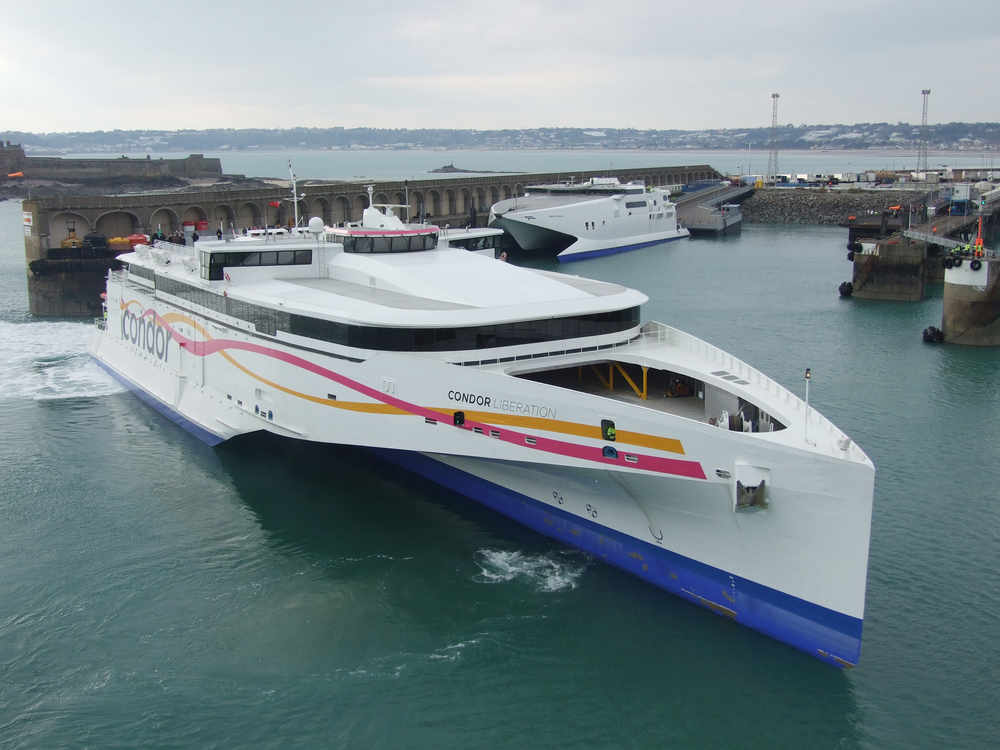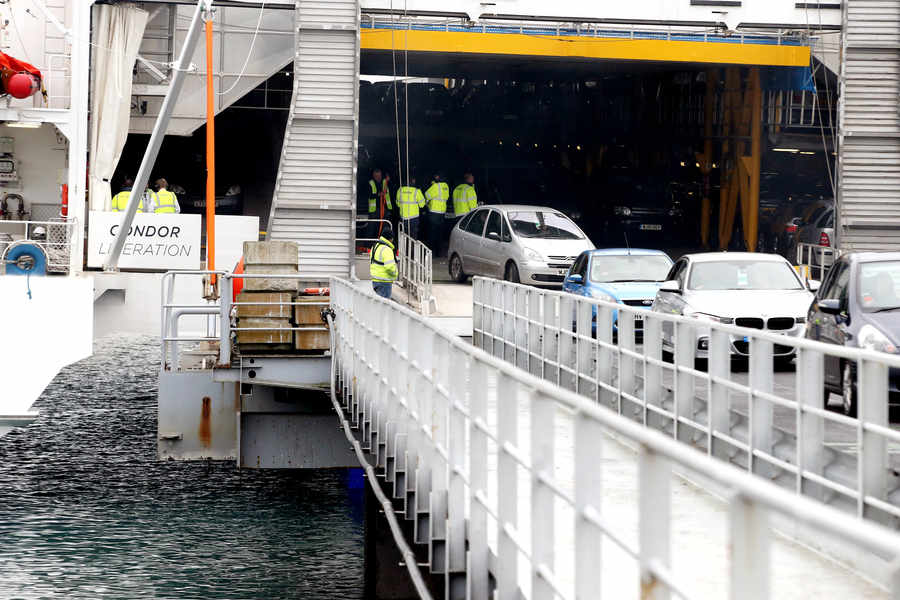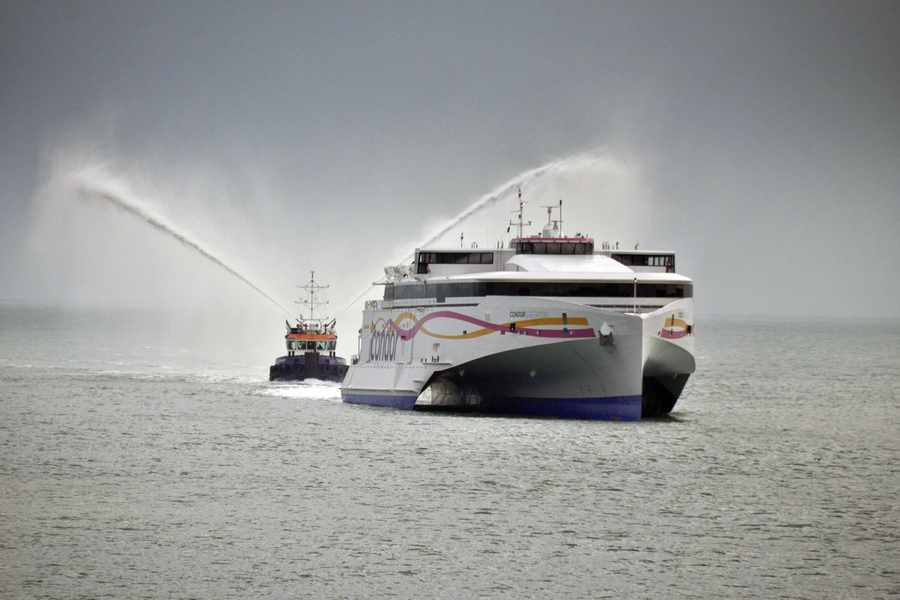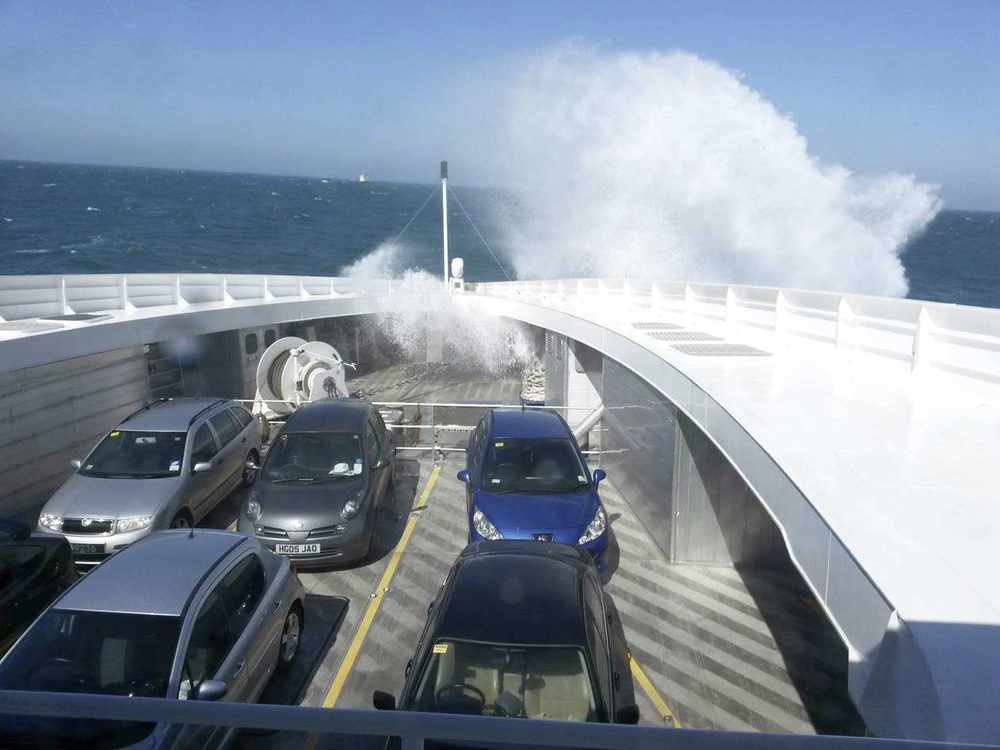- Condor Liberation has faced an inauspicious start to life on the Jersey to UK route
- The £50m ferry has been hit by cancellations due to bad weather and a crash in Guernsey Harbour
- Now Economic Minister Lyndon Farnham has criticised the company’s lack of contingency plans
- Will the Condor Liberation be a success? Take part in our poll below
CONDOR Ferries’ lack of contingency plans following weeks of disruption to services have been heavily criticised by the Economic Minister.
Senator Lyndon Farnham said on Monday that the series of delays and cancellations the new fast ferry had faced since it came into service in March was ‘disappointing’ and added: ‘You could not have made it up’.
He said that in his opinion the company should have retained the Express for another two months, to cover any hiccups in the service provided by their new flagship vessel, the Liberation.
Since the £50 million Liberation was brought into service there have been numerous delays to the schedule, as well as a collision in Guernsey’s harbour during the first week which required emergency repairs in the UK.

The ferry was also cancelled on Saturday with the company saying that it could not berth safely in the strong winds as it currently has a faulty bow thruster.
‘It is all extremely disappointing,’ Senator Farnham told the Economic Affairs Scrutiny Panel yesterday. ‘You could not have made it up.’
The minister described the sequence of events as ‘bad luck’, coming after months of sea trials. He said that Condor had not been prepared for ‘the level of customer dissatisfaction’ and had admitted that they had not handled it well.
‘We called the chairman to a meeting and made it abundantly clear that although there were some circumstances beyond their control, some were clearly not,’ Senator Farnham said. ‘They are trying to get it together, but as those of you who own a boat will know, they are quite unpredictable, particularly a brand new boat.
He said there had been ‘a lot of communication’, including an open letter from Condor’s chairman, Russell Kew. ‘We have an undertaking that they are doing everything they can so that normal services can resume,’ said the minister, adding that the company were ‘fully aware of their responsibilities’.
‘We will also try and support them – the service is vital to the Channel Islands and it is in everybody’s interest to ensure that it works well,’ he said.

Chairman of the panel, Deputy Simon Brée, asked whether the minister would agree that Condor had the monopoly over the lifeline service. ‘Really it is Economic Development’s responsibility to make sure that the service is maintained at all times,’ he said. ‘The decision was taken to sign a contract with Condor and they have failed. There are no contingencies. Do you not agree that this has to change?’
The Deputy said that there was public concern about the current licensing agreement and Condor’s ability to withdraw contingency vessels. ‘This leaves a weakness in the route. Are you satisfied that they are doing their utmost to make sure it does not happen again?’ he asked the minister.
Senator Farnham replied that as a business, Condor could not afford not to put things right, but that to expect the company to keep a vessel in reserve was ‘not viable’.

‘I think they were a bit hasty in taking the Express out of service, but they were offered a sale of both their boats, and offers like that do not just come along,’ he said. ‘Commercially it was the right thing to do, but they started to decommission the Express as soon as the Liberation was deployed. I would have liked a couple more months.’
Asked what action or sanctions Economic Development could take, as the licensing body, the minister said that Condor’s contingency plan was to use their existing fleet. ‘If the Liberation is down, the Clipper steps in.
‘They are vulnerable if they have a problem with the northern and southern routes at the same time, especially in peak season,’ he said. ‘They would then charter a boat in.’
Asked about the Liberation’s timetable, he said there were ‘not a number of significant problems’, apart from a 4.30 am departure time.
‘Modern consumers are prepared to work around travel arrangements,’ he added.

A CONDOR passenger urged the ferry firm to stop allowing cars to be parked on the open deck last month – after her vehicle was sprayed with sea water for three hours during a crossing.
Jean Dean – a 56-year-old Guernsey resident – is one of a number of Channel Islanders who have raised concerns at being made to park on the upper car deck at the bow of the new Liberation fast ferry.
She recently travelled to Poole and was given assurances from a crew member that her car would stay dry when she was asked to park it in the open bow.
‘I also voiced my concern to a stewardess directing passengers to their seating areas but she just laughed and said it would only get wet if it rained.
‘When I went to the lounge, I watched as the cars were plastered in salt water for three hours.
‘It does make me angry and everybody there was unhappy about it because when we drove off the boat we couldn’t see out the windows because they were covered in salt water.
‘I had to find a garage to wash my car so I could safely drive, never mind the longer-term damage three hours of salt water did to my car.
‘When you pay to have your vehicle transported, it should be treated with care and respect.’
Mrs Dean also said that when she asked a stewardess why the cars had not been put on the covered upper deck that was ‘nearly empty’, the response was that the operator needed the extra ballast on the bow.
‘I’m not worried about compensation or anything like that I just think this needs to stop.
Condor has defended its position, saying that when loading car ferries, it was important for both safety and passenger comfort that vehicles were placed in a way that created even weight distribution across the deck.






